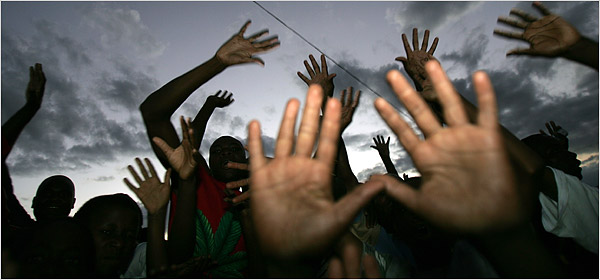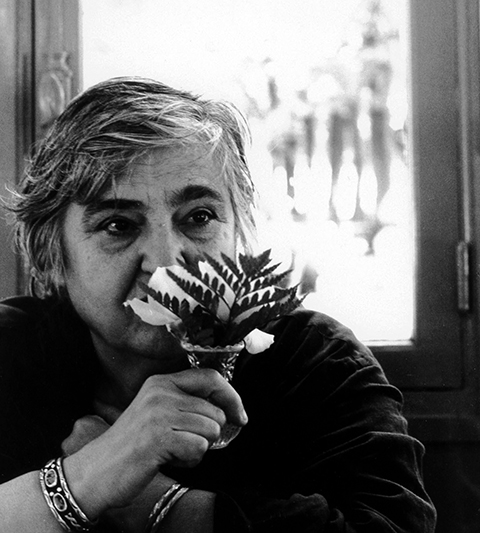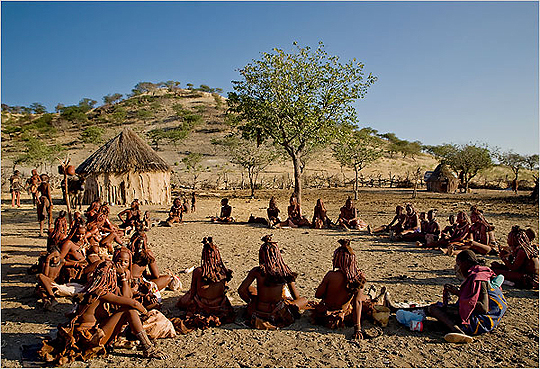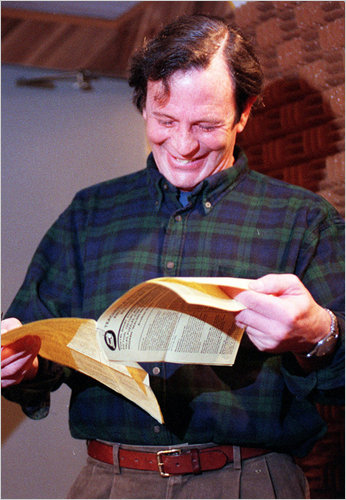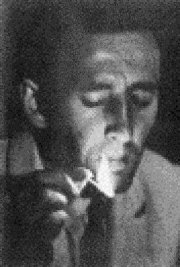Announcing: The AWESOME CREATOR Series
 Who is an awesome creator?
Why... YOU are!
It's still Poetry Month, and we at Exit Strata have been largely focused on that discipline, with our invitational 30/30/30 Inspiration, Community, Tradition posts.
However, we want to stress that we love and are inspired by *all* creative disciplines -- in fact, that this big love is why we are here. The primary intention behind using our virtual home as a portal for not only for content but for people is to bring together creators from all mediums: a reminder that we are more alike than we are different.
Who is an awesome creator?
Why... YOU are!
It's still Poetry Month, and we at Exit Strata have been largely focused on that discipline, with our invitational 30/30/30 Inspiration, Community, Tradition posts.
However, we want to stress that we love and are inspired by *all* creative disciplines -- in fact, that this big love is why we are here. The primary intention behind using our virtual home as a portal for not only for content but for people is to bring together creators from all mediums: a reminder that we are more alike than we are different.
POETRY MONTH: 30/30/30: Inspiration, Community, Tradition: DAY 12 :: Frank Sherlock on Etel Adnan
 Etel Adnan was born in 1925 in Beirut, Lebanon. Her father was a Syrian Muslim and her mother was a Greek Christian. She was raised speaking French, English, and her father taught her written Arabic. Adnan studied philosophy at the Sorbonne, Paris, University of California, Berkeley, and Harvard. She has many books of poetry and fiction published, including Paris When It's Naked, Of Cities and Women, and Sitt Marie Rose, which has been translated into over ten languages and is considered a classic of Middle Eastern literature. She also creates oils, ceramics and tapestry.
“A life spent writing has taught me to be wary of words. Those that seem clearest are often the most treacherous.” So begins Amin Malouf's In the Name of Identity: Violence and the Need to Belong. [Ed: free e-book/pdf at link] As words are navigated into the public sphere, to be watchful requires an interrogation of language, conscious of its make up and observant of mutations as it travels across borders and time.
Etel Adnan was born in 1925 in Beirut, Lebanon. Her father was a Syrian Muslim and her mother was a Greek Christian. She was raised speaking French, English, and her father taught her written Arabic. Adnan studied philosophy at the Sorbonne, Paris, University of California, Berkeley, and Harvard. She has many books of poetry and fiction published, including Paris When It's Naked, Of Cities and Women, and Sitt Marie Rose, which has been translated into over ten languages and is considered a classic of Middle Eastern literature. She also creates oils, ceramics and tapestry.
“A life spent writing has taught me to be wary of words. Those that seem clearest are often the most treacherous.” So begins Amin Malouf's In the Name of Identity: Violence and the Need to Belong. [Ed: free e-book/pdf at link] As words are navigated into the public sphere, to be watchful requires an interrogation of language, conscious of its make up and observant of mutations as it travels across borders and time.
POETRY MONTH 30/30/30: Inspiration, Community, Tradition: Day 11 :: Pamela Laskin on Samantha Reiser
 I have been enormously inspired by the work of my daughter, the poet Samantha Reiser. This might seem like an odd choice, since I am her Mom, and usually it works the other way around. Samantha Reiser recently completed her degree at Harvard College, where she was an English Concentrator. TOMAS SIMON AND OTHER POEMS, her senior thesis, was a finalist for the Yale Younger Poetry Prize for 2012, and her work has been published in SIC, THE ONE THREE EIGHT, LYRE, LYRE and THE J JOURNAL. Her essay, "Namibian Shoes" is included in the anthology, IT'S ALL ABOUT SHOES. She has been a poetry judge for the NYC Poetry Festival for several years, and she volunteers her time as a rape crisis advocate.
[caption id="attachment_601" align="alignright" width="300" caption="World Teach School in Ondangwa, Namibia"]
I have been enormously inspired by the work of my daughter, the poet Samantha Reiser. This might seem like an odd choice, since I am her Mom, and usually it works the other way around. Samantha Reiser recently completed her degree at Harvard College, where she was an English Concentrator. TOMAS SIMON AND OTHER POEMS, her senior thesis, was a finalist for the Yale Younger Poetry Prize for 2012, and her work has been published in SIC, THE ONE THREE EIGHT, LYRE, LYRE and THE J JOURNAL. Her essay, "Namibian Shoes" is included in the anthology, IT'S ALL ABOUT SHOES. She has been a poetry judge for the NYC Poetry Festival for several years, and she volunteers her time as a rape crisis advocate.
[caption id="attachment_601" align="alignright" width="300" caption="World Teach School in Ondangwa, Namibia"] [/caption]
Samantha has opened up the door for me to start thinking of poetry outside of the box of my immediate surroundings. Samantha's poetry lives and breathes in the world, since her concerns are about humanity, social injustice, women's rights, both on a national and international level.
[/caption]
Samantha has opened up the door for me to start thinking of poetry outside of the box of my immediate surroundings. Samantha's poetry lives and breathes in the world, since her concerns are about humanity, social injustice, women's rights, both on a national and international level.
POETRY MONTH 30/30/30 : Inspiration, Community, Tradition : DAY 10 :: Sarah Pinder on Libby Scheier
 I encountered Libby Scheier’s work for the first time in my late teens, when I first moved to Toronto. It was a perfectly synchronous moment – I was so hungry for directness, and Scheier serves it up in spades. I devoured everything of hers I could get my hands on, treating the collections as guidebooks on possible routes to the places I wanted to go in my own work. She wrote so angry, and so tender, and candidly addressed relationships, violence and agency in ways that are paint-strippingly clear.
I encountered Libby Scheier’s work for the first time in my late teens, when I first moved to Toronto. It was a perfectly synchronous moment – I was so hungry for directness, and Scheier serves it up in spades. I devoured everything of hers I could get my hands on, treating the collections as guidebooks on possible routes to the places I wanted to go in my own work. She wrote so angry, and so tender, and candidly addressed relationships, violence and agency in ways that are paint-strippingly clear.
POETRY MONTH 30/30/30: Inspiration, Community, Tradition : DAY 9 :: Maryam Parhizkar on Paul Violi
 In November 2011 H_NGM_N Books reissued In Baltic Circles, Paul Violi's first book of poems, originally published in 1973 by The Kulchur Foundation. This resulted out of funny circumstances: after seeing a review by Matt Hart of his last book, Overnight, in Coldfront Magazine, Violi sent Hart a photocopy of the original book with a handwritten note saying, "I like to think it's not all juvenilia!" In Baltic Circles is hardly that – even as an early book it encompasses so much of Violi's essence. What does that mean? For one, if there were ever code of ethics for the poetic form, you also could count on him to violate it in a poem – and he did so in such an elegant and charming way that you could never hold it against him. This is his edgy cleverness, accompanied by a romantic streak and a surreal awareness of the everyday... They are qualities that also radiated like the sun from his personality.
In November 2011 H_NGM_N Books reissued In Baltic Circles, Paul Violi's first book of poems, originally published in 1973 by The Kulchur Foundation. This resulted out of funny circumstances: after seeing a review by Matt Hart of his last book, Overnight, in Coldfront Magazine, Violi sent Hart a photocopy of the original book with a handwritten note saying, "I like to think it's not all juvenilia!" In Baltic Circles is hardly that – even as an early book it encompasses so much of Violi's essence. What does that mean? For one, if there were ever code of ethics for the poetic form, you also could count on him to violate it in a poem – and he did so in such an elegant and charming way that you could never hold it against him. This is his edgy cleverness, accompanied by a romantic streak and a surreal awareness of the everyday... They are qualities that also radiated like the sun from his personality.
POETRY MONTH 30/30/30 : Community, Inspiration, Tradition :: Day 8: Frank Ortega on Andrew Acciaro
[caption id="attachment_541" align="alignleft" width="142" caption="photo: Howard Goodman"] [/caption]
It's Easter. I don't have any chemically-colored eggs or chocolate that I can offer you here, no old zombie stories, just unnatural spring weather on a planet that has officially had 324 consecutive months of global temperatures exceeding their long-term average for any given month. You can convert that to years, if you're feeling brave. You can pray, if it helps. And you can read poetry.
It's Easter, and before you go searching for new eggs or reborn gods or just plain hope, let me share this living soul, a human deity, whose intelligence and compassion fill me with that hope we are constantly seeking. His name is Andrew Acciaro, and he lives and works near me in Peekskill, next to the Hudson River. Andrew lives and breathes the poetic life, and it is impossible for me to chose even one poem of his to share, as each goes in such different directions, as if Andrew is dipping into the consciousness of all styles, past, present and future to offer vital messages of the now.
[/caption]
It's Easter. I don't have any chemically-colored eggs or chocolate that I can offer you here, no old zombie stories, just unnatural spring weather on a planet that has officially had 324 consecutive months of global temperatures exceeding their long-term average for any given month. You can convert that to years, if you're feeling brave. You can pray, if it helps. And you can read poetry.
It's Easter, and before you go searching for new eggs or reborn gods or just plain hope, let me share this living soul, a human deity, whose intelligence and compassion fill me with that hope we are constantly seeking. His name is Andrew Acciaro, and he lives and works near me in Peekskill, next to the Hudson River. Andrew lives and breathes the poetic life, and it is impossible for me to chose even one poem of his to share, as each goes in such different directions, as if Andrew is dipping into the consciousness of all styles, past, present and future to offer vital messages of the now.
Poem: What Great Troubleshot Fauna We've Become by Peter Milne Greiner
I boycott his atoms / after a glissade of bunk attempts / then laud their inky, mobile / residuum again. / The ingredients of / the music are my mimic falsetto / and the sound of a door locking /
POETRY MONTH 30/30/30: Inspiration, Community, Tradition :: DAY 7: Gregory Crosby on Kenneth Fearing
 When I moved to New York nearly eight years ago, I became a determined flâneur—in Baudelaire’s formulation, one who walks the city in order to experience it—and although the New York I walked was not 1929 or 1938 or 1943, I heard everywhere, persistent, sardonic, and expansive, the voice of Kenneth Fearing (1902-1961) in the back of my mind. To read Fearing is to suddenly meet Walt Whitman not in a supermarket but in the neon shadows of a film noir. I can think of few other poets who capture the alienation and exultation of urban existence, at once cosmopolitan and proletariat, sophisticated and vulgar. To live in a city is to live at all times inside the human mind: Fearing’s best poems buzz in that hive of loneliness and longing:
X Minus X
Even when your friend, the radio, is still; even when her dream, the magazine, is finished; even when his life, the ticker, is silent; even when their destiny, the boulevard, is bare;
And after that paradise, the dance-hall, is closed; after that theater, the clinic, is dark,
Still there will be your desire, and hers, and his hopes and theirs,
Your laughter, their laughter,
Your curse and his curse, her reward and their reward, their dismay and his dismay and her dismay and yours—
Even when your enemy, the collector, is dead; even when your counselor, the salesman, is sleeping; even when your sweetheart, the movie queen, has spoken; even when your friend, the magnate, is gone.
When I moved to New York nearly eight years ago, I became a determined flâneur—in Baudelaire’s formulation, one who walks the city in order to experience it—and although the New York I walked was not 1929 or 1938 or 1943, I heard everywhere, persistent, sardonic, and expansive, the voice of Kenneth Fearing (1902-1961) in the back of my mind. To read Fearing is to suddenly meet Walt Whitman not in a supermarket but in the neon shadows of a film noir. I can think of few other poets who capture the alienation and exultation of urban existence, at once cosmopolitan and proletariat, sophisticated and vulgar. To live in a city is to live at all times inside the human mind: Fearing’s best poems buzz in that hive of loneliness and longing:
X Minus X
Even when your friend, the radio, is still; even when her dream, the magazine, is finished; even when his life, the ticker, is silent; even when their destiny, the boulevard, is bare;
And after that paradise, the dance-hall, is closed; after that theater, the clinic, is dark,
Still there will be your desire, and hers, and his hopes and theirs,
Your laughter, their laughter,
Your curse and his curse, her reward and their reward, their dismay and his dismay and her dismay and yours—
Even when your enemy, the collector, is dead; even when your counselor, the salesman, is sleeping; even when your sweetheart, the movie queen, has spoken; even when your friend, the magnate, is gone.
POETRY MONTH 30/30/30: Inspiration, Community, Tradition: Day 4 :: Tishon Woolcock on Orhan Veli Kanik
 I’m going to level with you; I know nothing about Turkey and I know even less about Turkish Poetry. Luckily, I have Buké, my sole Turkish friend. Buké is tiny, smokes cigarettes, and speaks with a directness that can sometimes be mistaken for rudeness. It is she who introduced me to the Turkish poet Orhan Veli Kanik (1914-1950). I can’t speak to Kanik’s stature but, like Buké, his poetry is about as direct as a poet can get. Like the work of William Carlos Williams or, more contemporarily, Billy Collins, Kanik’s poems have been described as the kind of poetry that convinces readers they, too, can write a poem. Take, for example, “The Hill”.
I’m going to level with you; I know nothing about Turkey and I know even less about Turkish Poetry. Luckily, I have Buké, my sole Turkish friend. Buké is tiny, smokes cigarettes, and speaks with a directness that can sometimes be mistaken for rudeness. It is she who introduced me to the Turkish poet Orhan Veli Kanik (1914-1950). I can’t speak to Kanik’s stature but, like Buké, his poetry is about as direct as a poet can get. Like the work of William Carlos Williams or, more contemporarily, Billy Collins, Kanik’s poems have been described as the kind of poetry that convinces readers they, too, can write a poem. Take, for example, “The Hill”.THE HILL
Poetry Month 30/30/30: Inspiration, Community, Tradition: DAY 3 :: Bill Considine on Elinor Nauen


